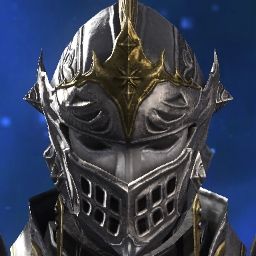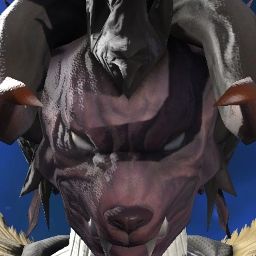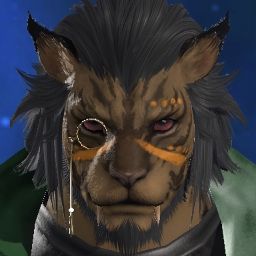Even if it is, would it matter? The forums are also a housing hate echo chamber. It's a healing one-button-rotation hate echo chamber. If a thread on the forums has to become an echo chamber to give these people solace or get a point across, then I don't have a problem with it.
I saw a thread wanting more effort from people. I go to discussion subreddit and someone was explaining that one of their friends won't stop healing on red mage to "help" the healers. The subreddit is known to be more critical than the other ones, but even the response is "it's not savage, don't worry about it". Anywhere off the forums and being critical with anything about the game will usually result a vast majority of people defending the game.
There's also the fact that a lot of criticism about the game is initially labeled as trolling. Even a well known streamer took a look at this thread's title and called it trolling. It kind of sucks. It sucks the housing situation seems to have no end. It sucks that healers are no longer multi tasking and are reduced to spamming one button for 80% of the encounter. It sucks that hrothgar waited patiently for new hairstyles only to be given the option to turn into earrless Karens years later. The developers can do better. I feel the writers can do better than what we got in Endwalker.
-
07-28-2022 02:22 AM #6421(14)
Last edited by DevonEllwood; 07-28-2022 at 02:35 AM.
-
07-28-2022 02:41 AM #6422Player

- Join Date
- Jan 2022
- Location
- Uldah
- Posts
- 1,180
- Character
- Elmind Exilus
- World
- Gilgamesh
- Main Class
- Red Mage Lv 100
Frankly, I haven't seen that. There's entire threads dedicated to ideas for improving the game, some for specific races, some about general QoL improvements, etc., and there's a lot of constructive, respectful discussion happening there.
People take things as personal attacks, when...well, they are personal attacks. Which, sadly, is the only MO some people seem to know around here when it comes to "criticizing" the game. I'll give an exhibit from another recent thread:
"This story is not constructed as well as more recent single player titles, and if they want to regard FFXIV as one then they need to do better than what we're seeing now with this party."
The poster acts as if they are the ultimate arbiter of what is good or bad, and then directly attacks the dev team if they don't change their approach in some way to suit the whims of the poster. That's not productive (or mature for that matter). Present something as your opinion and discuss things you'd like to see, and people react respectfully to that around here. Go about demanding things or calling other players or the dev team incompetent, terrible, fanboys, etc. and that gets treated as an attack - because it is.(5)
-
07-28-2022 02:59 AM #6423Player

- Join Date
- Sep 2013
- Posts
- 10,051
- Character
- Matthieu Desrosiers
- World
- Cerberus
- Main Class
- Reaper Lv 90
I suspect a lot of the similarities are due to both fandoms attracting a lot of people who flock to the likes of Twitter and Tumblr. Both sites are very prone to the cult like behaviour of policing personal tastes. I've seen many people follow the tag for specific characters purely to argue with anyone who brings them up in a way they dislike - even when the commentary is completely inoffensive.
Admittedly healing is my least favourite role to begin with though I was excited for Sage and found it to be very lacking due to the one button spam. I always thought it would make sense to have one job for each role be simple and 'boring' to ease people into things but allow the others to be more engaging and various degrees of complex as a compromise.
That way the people who feel 'stressed' by having more than one or two buttons at their disposal can still play as they so wish but those of us who like a more engaging and complex rotation can have something to appease us.
'Elitist' is a phrase I don't take too seriously these days though - it's often used by those who are happy to do as little work as they can get away with whilst hoping other people work harder to compensate.
I won't pretend to be a super amazing player but I do try and it's always a shame when I feel like I have to grit my teeth and not bother commenting on something because there's a real risk of an argument or a ban if someone dares to value their time.(11)
-
07-28-2022 04:52 AM #6424Player

- Join Date
- Jun 2019
- Location
- The Bureau of Clownery
- Posts
- 38
- Character
- Keelty Brewer
- World
- Lich
- Main Class
- Conjurer Lv 2
As respectful as randomly cannonballing in here, saying the same thing over and over again and presenting it as objective fact with the same tired 'majority!' argument? While throwing statements out that are proven wrong by the same story we crtiticise here? While patting yourself on the back passive-aggressively because you think you have it all figured out? And then ignoring people who tell you that you are wrong?
Don't make me laugh.(22)While you were studying the blade, I was learning about better recycling methods from Elidibus.
-
07-28-2022 06:03 AM #6425
1.) Show up.
2.) Say some snide disingenuous bs.
3.)
 (14)
(14)
-
07-28-2022 08:02 PM #6426Player

- Join Date
- Jul 2015
- Location
- Gridania
- Posts
- 887
- Character
- Sylbritt Muscadet
- World
- Cerberus
- Main Class
- Archer Lv 89
Getting back to the story...
And sorry, I'm no doubt rehashing a few points that have already been made considering the size of the thread.
I'm on another play through of Elpis and it's confirming my opinion that the writing was rushed because it could have been a lot tighter.
Just before he sends us into the past, Elidibus tells us we can observe and interact with the ancient world but we cannot change what is going to happen. However, the story of ShB centers around a character who had gone into the past and done exactly that. It seems odd there is no reason given why this situation is different.
I understand the plot of EW requires us to have no noticable effect on the past, but considering how things work out with Kairos, that warning is unnecessary; it serves no purpose and contradicts what has happened before.
It's interesting to see that Venat doesn't seem to have any reservations about their society and it's aims before we get Metion's report. Only Hermes asks what will happen when they achieve perfection and nobody answers him or even tries to discuss it.
I think Venat's sudden decision that the only way forward is to sunder every living thing and set back civilization to a point where the planet's inhabitants are basically having to re-evolve might have been more understandable if there was any hint that their society was stagnating or deeply flawed. As it is, we see no poverty, no disease (not so much as a pair or glasses!) and we learn war has been eliminated. I know the Dead Ends is supposed to show us how truly awful achieving perfection is, but... I don't feel it was inevitable that the ancients would followed the same path. And even if they were destined to go exactly the same route, I don't think that justifies genocide.
Oddly enough, the most disquieting hint about their society come from Emet's recreation of Amaurot in ShB, where we learned that even children expressing individuality through their clothing should be careful because 'you never know who is watching'. I think that could have and should have been built on.
As it is, ancient society on Etherys seems close to ideal. The Elpis flower shows that everyone bar Hermes is genuinely happy. If that happiness is meant to be dependent on a certain moral blindness, then I think the writers should have found a better example. Hermes having to kill creations that were merrily slaughtering everything in their path and who would have probably gone extinct due to hunger if released into the wild doesn't seem immoral or questionable to me.
After twelve thousand years, the societies on the source have evolved to quite a sophisticated level but people are still fighting for land and resources. Prejudice and corruption are rife, and many people are trapped in poverty and not leading happy and fullfilled lives (admittedly, the actions of the Ascians are partly responsible for present day suffering).
If the sundering had been accidental, or if the dire consequences had been unforeseen I could have accepted Venat as someone who meant well but did terrible things, as long as she was remorseful. As it is, I find it impossible to accept her actions as benevolent. She said she would not return to the star while people still needed her help and professed her great love for the people of her time, but then went and wiped out their entire civilisation and devoted herself to ensuring her actions could not be undone.
She lied to us from the start and I can only conclude she did that because she knew that we wouldn't have been quite so willing to fight for her if we had known the truth.
While the Ascian's often don't tell us the entire truth, they do not lie to us outright. I feel the writers maybe got that one wrong.
The main theme of the expansion seems to be that suffering is necessary and enobles. Not something I personally agree with and the writers didn't manage to convince me otherwise.
There is also a theme of people needing to be lied to for their own good running through the expansion, which I am personally very uncomfortable with. The actions of the Sharlayan Forum to go against the founding principles of their society, but somehow nobody questions whether concealing the truth was the right thing to do.
I'm also rather disturbed by the fact that Alphinaud and Alisae come from a family that seem to have an obscene amount of wealth when many Sharlayan's are living extremely frugal lives due to most resources being diverted to the evacuation effort.
That wealth is very convenient for the Scions, but I can't help wondering how the family amassed and kept it. It rather smacks of government officials in our world imposing austerity on the people they govern while ensuring they and their family live very comfortably indeed.
Minor Niggles:
I'm also disappointed with the direction they have taken G'raha. He had the potential to be a very interesting character, but now he's just our biggest teenage fanboy. What happened to all those centuries of experience and learning? He had one little moment of leadership and then just reverted back to being starry-eyed filler material.
6.1 was disappointing too. Since we know that Radz-at-Han has had the same ruler for centuries, despite it not appearing that way to the people, then wouldn't we have asked them about the treasure before we went blundering into that dungeon? It just seemed so incredibly stupid of us.
I am hoping 6.2 comes closer to the standard of storytelling we had in ShB.(17)Last edited by Solarra; 07-28-2022 at 08:17 PM.
-
07-30-2022 12:15 AM #6427Player

- Join Date
- Aug 2016
- Location
- Amaurot
- Posts
- 275
- Character
- Teraq Moks
- World
- Behemoth
- Main Class
- Ninja Lv 90
And I hate it so much that Emet apparently finds nothing to reply to Hermes when it's ... such an abstract argument to make in the first place. What is perfection, Hermes? How does everyone agree on what it is? How do you reach it? When do you reach it? Why are you assuming that its definition would never change with time and culture? And with all that considered... why would such an end be bad? Oh no, not dying painlessly by my own will with a smile on my face, PLEASE, I'd much rather take the horrific pandemic that turns you into a walking pus boil or the worldwide civil war!It's interesting to see that Venat doesn't seem to have any reservations about their society and it's aims before we get Metion's report. Only Hermes asks what will happen when they achieve perfection and nobody answers him or even tries to discuss it.
The worst is that Emet not answering him any of this makes it sound like Hermes has a point. God. I hated Elpis so much for its dumb plot, and loved it so much for the lore and world building. Help me.
The parallel is pretty fallacious to begin with IMO. Yes, I know the writers intended it. I don't care very much for the writers' intent anymore, frankly. But to base this entire reasoning, as Venat does in-universe, off a short and shallow comparison to a completely alien civilisation we have next to zero context for, on a planet distant enough to be dubbed #17 by Meteion, comes across as a little... crude. Making them wear hooded robes and masks is just another occurrence of Endwalker's sheer brillance that requires a very high IQ to appreciate. In fact, I can point to a sizeable enough biological difference between the Ancients and Plenty McDekahepta: the Plentymen's bodies are fully made of straw, while the Ancients' are somewhat less so.I know the Dead Ends is supposed to show us how truly awful achieving perfection is, but... I don't feel it was inevitable that the ancients would followed the same path. And even if they were destined to go exactly the same route, I don't think that justifies genocide.
And if we're going to make such a parallel off so little information, how damning are the first two worlds of the Dead Ends for the Sundered? I see no indication they will never ever ever succumb to a surprise pandemic brought on by overexploitation and an ecological disaster, or a massive world war. Uh oh! Best cancel them now!
Endwalker tl;dr:

The only thing less necessary than Alzadaal's Legacy in the story was Alzadaal's Legacy being covered up in OMG SPOILERS!!!!!! during the live letters. Wow. That secrecy sure was worth it. It was just as epic as Seat of Sacrifice!6.1 was disappointing too. Since we know that Radz-at-Han has had the same ruler for centuries, despite it not appearing that way to the people, then wouldn't we have asked them about the treasure before we went blundering into that dungeon? It just seemed so incredibly stupid of us.
I laughed at Vrtra casually asking the alchemists to respawn the trash packs and bosses.
Just a last tidbit:
You forgot about everyone's favorite Lahabrea simp in chief! Honestly I do think it's weird, but I suppose he might just be wearing them as a fashion statement... which would be frowned upon in Amaurot, but he's a chief warder in the spiciest underground zoo on the planet, he can strut around wearing glasses all he likes.no disease (not so much as a pair or glasses!)
And speaking of Lahabrea, recently: I get it, Hesperos. You were right. Worth the simping.(11)Last edited by Teraq; 07-30-2022 at 12:46 AM. Reason: Alzadaal
-
07-30-2022 12:50 AM #6428Player

- Join Date
- Mar 2022
- Posts
- 655
- Character
- Victoria Crowny
- World
- Hyperion
- Main Class
- Black Mage Lv 90
To me, the most telling scene with Venat is when an admirer of hers gleefully asks her when she plans to return to the star, Venat politely gives her a non-answer, and then confesses to the WOL that she actually has NO plans to ever do it, because she sees her personal mission as neverending. Venat's demeanor there gave me impressions of a real-world woman with a successful career being asked when she plans to get married, retired and have a baby, and withholding the urge to say she doesn't want to do any of those things, because their society values it so highly. It gave me the impression that Venat had her dissatisfaction or unease about aspects of Ancient society, but didn't know how to go about changing things without hurting peoples' feelings. Then, when Hermes makes his "challenge", and the Final Days comes, she's disappointed because her people didn't make the changes she expected on their own.
The problem with this, of course, is that the writers intended for the players to see the Ancients as "scary", where they defined scary as "not like us". The writers, apparently, thought that the Ancients having basically no struggles whatsoever, and having little reaction to death as long as it serves a "purpose" (for example, killing the petaludas to make some robes and being excited about others of their own returning to the star) would make them seem cold and alien enough that the players would agree that modern day spoken races are an overall "upgrade". The Ancients were intended to be portrayed as detached and in denial, but (in my opinion) they failed to show that during Elpis. They tried to double down on it by showing irrational strawman version of the Ancients during the Sundering scene, but even that doesn't work because, following the Kairos incident, Venat herself had all the keys in her hand to prevent things from coming to that and she did nothing.(2)
-
07-30-2022 01:06 AM #6429Player

- Join Date
- Sep 2013
- Posts
- 10,051
- Character
- Matthieu Desrosiers
- World
- Cerberus
- Main Class
- Reaper Lv 90
Speaking of the 6.1 dungeon, it's a shame that there weren't any real stumbling blocks to speak of. Not only is the player character meant to just be going on a regular adventure, by going to that particular dungeon they not only stumble across a way to travel to the Void but also manage to solve any lingering problems and tension building across Thavnair.
It's exactly that mentality that I think rids the world of any depth. The Witcher and Skyrim don't allow their respective game worlds to be robbed of any grit and consequences. Tension and conflict isn't removed entirely. FFXIV just seems to want to erode away anything that might cause meaningful, lingering conflict and opposing viewpoints/causes in favour of falsely presenting the player character's cause as the correct one at every turn. Right up to the point of now justifying genocide.
I think it's a very childish way to handle the story. Certainly, it isn't my story so I can only comment on it from the perspective of a fan...but the game was at its peak for me when it was happy to take inspiration from Matsuno's work rather than whatever this current trajectory is meant to be.(7)
-
07-30-2022 02:04 AM #6430Player

- Join Date
- Jan 2015
- Posts
- 1,677
- Character
- Princess Walk
- World
- Cactuar
- Main Class
- Thaumaturge Lv 100
Don't forget when they solve problems in an even worse manner... off-screen. Which they have done since 2.0. Elementals and woodsin, which were a BIG deal in shroud lore from 1.0 to 1.23? "Oh uh... elementals aren't a big threat anymore because er... c-calamity! Yeah! The calamity made them weaker!"
Or more recently when so soon we start fixing the relations between one of the beast tribes and the Lominsan, ALL beast tribes are already in the alliance a patch later...
And all the numerous plots they just never bothered to bring back or continue because they were always more interested in spitting in the lore - that wasn't even theirs to begin with - foundations to focus on their OCs and more colorful stories.
On the bright side since they're moving on there will not be that much to make worse, since it will be mostly original content from scratch.(8)






 Reply With Quote
Reply With Quote








